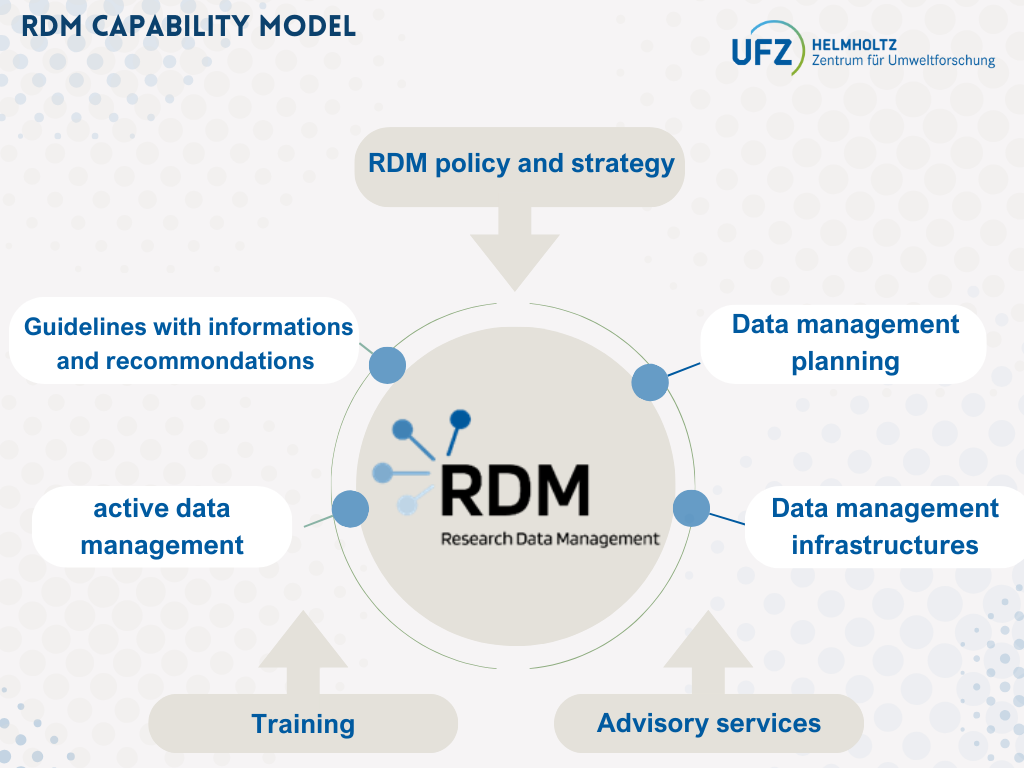
Vision and Principles
Our Vision
The activities in RDM until 2025 and beyond are framed by the following key goals:
- The UFZ is one of the leading international institutions in the field of terrestrial environmental data and digitization in science.
- Fundamental data sets on the state and change of our environment are available within multi-thematic research data cubes to enable advanced data science methods and cross-domain scientific usage.
- Common activities for novel sensor, information technologies and monitoring concepts enable closing of information gaps in environmental systems science. Prototypes help to test-drive new technologies and concepts and lead to the introduction of usable solutions.
- Interoperable data infrastructures support sustainable and long-term data findability, availability, reusability and semantic linking with metadata.
- Scientific communities are capable of dealing with all aspects of the modern data lifecycle and benefit from digital and cultural transformation.
Our Principles
Principles for the responsible handling of Research Data at the Helmholtz Centre for Environmental Research GmbH - UFZ
The UFZ is one of the world's leading research centres in the field of integrated environmental research. It supports various scientific communities on a national and international level and is committed to the social goal of reliably collecting and processing quality-assured research data on the state and changes of our environment and to preserving and making them available to the national and international community in the long term.
Therefore, the UFZ has formulated Principles for the Responsible Handling of Research Data at the UFZ (German Version).
The research data management at the UFZ is based on the FAIR data principles to ensure, that research data are:
- Findable
- Accessible
- Interoperable
- Reusable

A key to the successful implementation of the FAIR principle is a thorough and accurate description of the research data and their genesis using appropriate metadata schemes.
